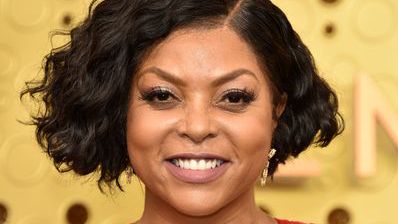
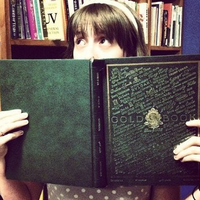
In the nearly two decades since her breakout performance in Baby Boy, Taraji P. Henson hasn't just built an impressive career—she's also built an incredible platform. Now, the 50-year-old actress is using that platform to give back to underrepresented communities and to speak out about important issues.
On Thursday, Henson headlined Marie Claire's Power On summit. The annual networking conference has gone virtual this year, for obvious reasons, and Henson joined the call via video chat from her home to discuss some of the issues that have been weighing on her most recently. When asked about the stigmas Black women face and what must be done to combat them, Henson candidly opened up about the problematic side of terms that are intended to be empowering to Black women—specifically "strong Black woman" and "Black girl magic."
The ever imitable @tarajiphenson on #BlackGirlMagic: "It lifts us up. But we have to be careful because I'm not a fairy. It dehumanizes my pain." In conversation with @marieclaire EIC @sallyholmes at #MarieClairePowerOn virtual summit. pic.twitter.com/l0n9iCYKTzOctober 8, 2020
"I understand the notion behind or the meaning behind 'strong Black woman' or 'Black girl magic,' I get it—it's to lift us up. But you have to be careful with that term, because what it does is it dehumanizes our pain," she explained. "You know, we're not fairies. I can't rebound from pain, or the loss of my son to the law, and nothing's being done about it. I have to be quiet and forgive and be nice and, you know, that's not fair to me. I am human and I hurt. And I think those terms like that are the reason why black women die in the emergency room or giving birth, because we are known to be strong. 'Well, she can deal with that pain.' You know, you don't understand how other people take that term, and maybe take it out of context. Or maybe go, 'Oh, they really are strong. They don't need as much, you know, help.' You know, so you have to be careful with terms like that. And so I'm speaking out about it. That's what I'm doing."
Henson also touched on a number of other important issues during her conversation with Marie Claire Editor-in-Chief Sally Holmes.
"I could sit up here all day long, and say, 'I got a therapist, and it works for me,' but you know, people, especially in the black community, we have trust issues when it comes to the medical industry. And especially when it comes to therapy, because for us, we have been told to stay strong. [We have been told] 'If you suffer from mental illness, that's a weakness,' so that's not something we embrace in our community. So for me, it was very important to put a face to it. And I feel like our community really trusts me. As an artist, they trust me in my work, you know, I don't sell a lot of things. So I think there's a certain amount of trust when it comes to me in the community, and I felt like me sharing my story and my struggles, putting a face to it would help free other people to talk about it and make people feel like 'wow, I'm not alone.'"
"It was very important for me because, pre-COVID, I was trying to find a therapist for myself and my son, and it was difficult. It was hard finding therapists that were culturally competent. It's not that they don't exist, but pooling them together and finding them is quite daunting. I just felt my spirit was being tugged, like, this is the problem. Then I started talking to my best friend, who is [now] the executive director of my foundation, and she's been suffering from anxiety since we were young kids. And so I was like, you know, this is a problem in our community because it's taboo. We don't talk about it, so our kids don't even know this is a field that they could go into.
And I said, we must do something about it. And so we started The Boris Lawrence Henson Foundation, named in honor of my father, who was a Vietnam vet—of course, coming back from war, you're gonna have some issues. I really couldn't help my dad as much when he was alive, and I feel like this is a great way to help him through a foundation in his namesake."
Stay In The Know
Marie Claire email subscribers get intel on fashion and beauty trends, hot-off-the-press celebrity news, and more. Sign up here.
"I kind of want to get rid of the myth that celebrities don't suffer. So I would like to call in some of my colleagues so we can talk about, you know, issues that they may be dealing with in the industry, because this is tough. Being an artist is being so vulnerable. When we expose our art to the world, that is the most naked feeling because it's vulnerability. You're putting yourself out there to be criticized and picked apart by the world, basically. I'm sure that triggers insecurities...So I want to marry celebrities and regular, everyday people so they can see that they're not alone. And talk about issues and give them tools that guide them in the direction to get the help that they need. This is a show that will help people. It will be a show that, at the end, we will have a safe place for people talk to contrast and compare so that they can talk and feel like they're not alone."

Kayleigh Roberts is a freelance writer and editor with more than 10 years of professional experience. Her byline has appeared in Marie Claire, Cosmopolitan, ELLE, Harper’s Bazaar, The Atlantic, Allure, Entertainment Weekly, MTV, Bustle, Refinery29, Girls’ Life Magazine, Just Jared, and Tiger Beat, among other publications. She's a graduate of the Medill School of Journalism at Northwestern University.
-
 Celebrate Earth Month With Our Feel-Good Fashion Report
Celebrate Earth Month With Our Feel-Good Fashion ReportYour guide to being more sustainable in 2024.
By Anneliese Henderson Published
-
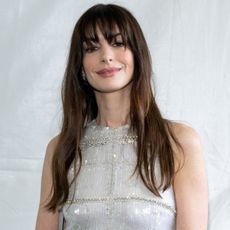 Anne Hathaway Details the "Gross" Audition Request She Once Endured
Anne Hathaway Details the "Gross" Audition Request She Once Endured"Now we know better."
By Meghan De Maria Published
-
 The Emotional Ending of 'Baby Reindeer,' Explained
The Emotional Ending of 'Baby Reindeer,' ExplainedNetflix's latest miniseries from Richard Gadd is based on the true story of the comedian and his stalker.
By Quinci LeGardye Published
-
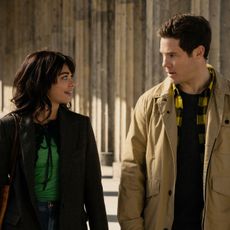 Sarah Hyland and Adam Devine Play 'How Well Do You Know Your Co-Star?'
Sarah Hyland and Adam Devine Play 'How Well Do You Know Your Co-Star?'The 'Modern Family' stars reunited for the 'Pitch Perfect' spinoff series.
By Brooke Knappenberger Published
-
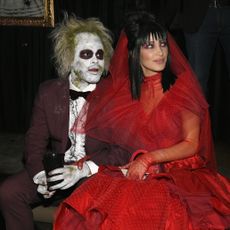 The 78 Best Celebrity Couple Halloween Costumes of All Time
The 78 Best Celebrity Couple Halloween Costumes of All TimeHonestly, we're impressed.
By Charlotte Chilton Published
-
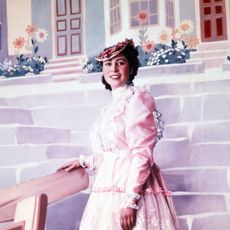 Super Rare Photos of Queen Elizabeth as a Young Woman
Super Rare Photos of Queen Elizabeth as a Young WomanFrom childhood snapshots to portraits as a young princess, beautiful and rare photos of the late Queen Elizabeth as a young woman.
By Mehera Bonner Published
-
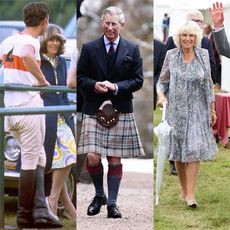 King Charles III and Queen Consort Camilla's Relationship: A Timeline
King Charles III and Queen Consort Camilla's Relationship: A TimelineWith the passing of Queen Elizabeth II, Charles has ascended to the throne as king.
By The Editors Published
-
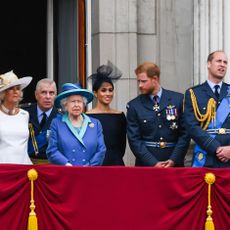 Who Is Next in Line for the British Throne, Explained
Who Is Next in Line for the British Throne, ExplainedAnd yes—Harry and Archie are still in the line of succession.
By Andrea Park Published
-
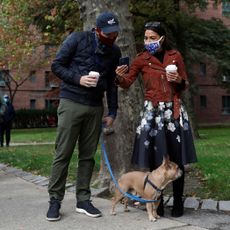 Who Is Alexandria Ocasio-Cortez's Fiancé Riley Roberts?
Who Is Alexandria Ocasio-Cortez's Fiancé Riley Roberts?AOC's husband-to-be is an "easygoing redhead" who lives with her in D.C.
By Katherine J. Igoe Published
-
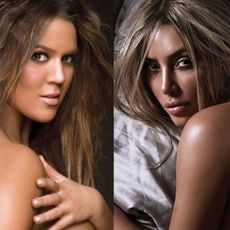 68 Times the Kardashians Posed Fully Nude and Owned It
68 Times the Kardashians Posed Fully Nude and Owned ItAnd we mean fully nude—as in, not a shred of clothing.
By Bianca Rodriguez Published
-
 Who Is Jonathan Owens, Simone Biles's Fiancé and NFL Player?
Who Is Jonathan Owens, Simone Biles's Fiancé and NFL Player?"The easiest yes!" Simone wrote about the couple's engagement.
By The Editors Published